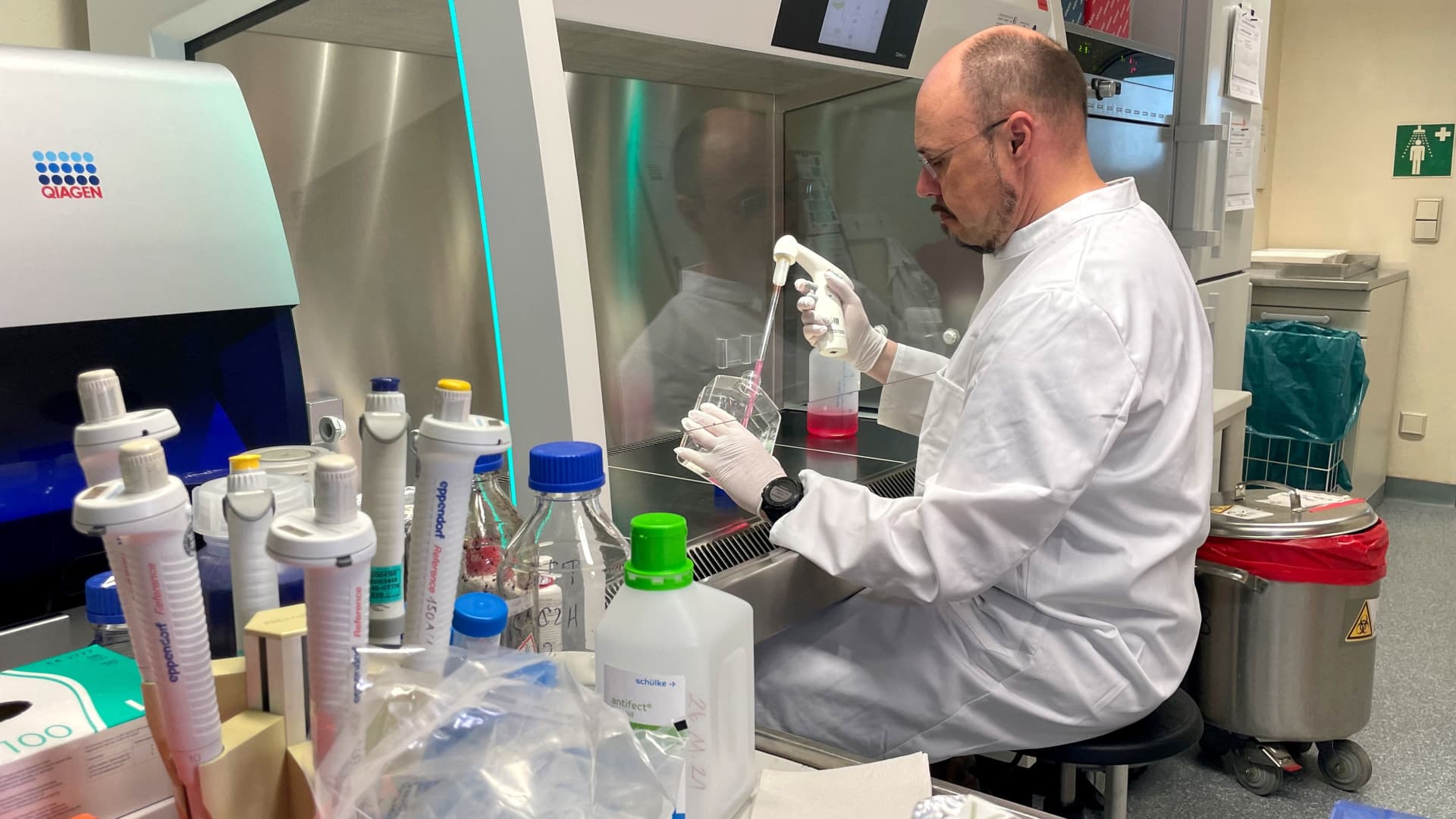
As the business and political elite gathered in Davos, Switzerland, this week for the first in-person World Economic Forum since the onset of the Covid-19 pandemic, global health concerns once again loomed heavy.
A mysterious recent outbreak of monkeypox — a rare viral infection endemic to Africa — has confounded doctors and scientists as cases have surged across Europe, North America, Australia and the Middle East.
As of Wednesday, at least 237 confirmed and suspected cases of the disease have been reported globally — double the number recorded at the start of the Davos conference Monday. Symptoms typically include rashes, fever, headaches, muscle ache, swelling and backpain.
But business leaders at the conference said they don’t see the virus posing a risk anywhere close to that of the coronavirus pandemic.
‘I wouldn’t worry much’
The CEO of pharmaceutical giant Pfizer said Wednesday that he “wouldn’t worry much” about the spike in cases, noting that current data suggests monkeypox doesn’t transmit as easily as other viruses such as Covid-19.
“With everything I know, I wouldn’t worry much,” Albert Bourla told CNBC, adding that some treatments already exist to minimize the impact of the virus.
Vaccinations against smallpox have proven 85% effective against monkeypox. Already France and Denmark are considering targeted vaccination campaigns for those most at risk of transmitting the disease.
Bourla’s comments echo those of the U.S. Centers for Disease Control and Prevention, who said Monday that the monkeypox virus “is not Covid,” noting that is does not transmit easily via the air and respiratory particles.
Not a ‘Covid-style’ risk
Jeremy Farrar, director of global health charity Wellcome, agreed that the likelihood of a Covid-style outbreak is minimal.
“Is it a Covid-style risk? No, I don’t believe it is,” he said Monday.
While Farrar noted that the recent outbreak was atypical for the monkeypox virus, he said it was not a cause for concern for the general public. Still, he said it was right that public health experts are taking the surge seriously.
“That’s not the same as saying public health people shouldn’t be worried. It’s not the same as saying we must not act swiftly,” Farrar said.
According to the World Health Organization, recent reported cases have no links to travel from endemic African countries. The majority of cases are instead spreading through sex, and particularly men who have sex with other men, the public health body said Monday.
Seth Berkley, CEO of global vaccine alliance Gavi, said Monday that there was more work to be done to figure out the genesis of the outbreak, with more cases likely until that happens.
“If this was a small outbreak occurring in Central Africa or West Africa, people would take that as normal. And you do see transmission person-to-person in those settings, so that’s not unusual,” Berkley said.
“But to have it appear now … means we have to figure out exactly what’s happening,” he continued.
“The truth is we don’t know what that is and therefore how severe it’s going to be. But it’s likely that we’re going to see more cases.”




